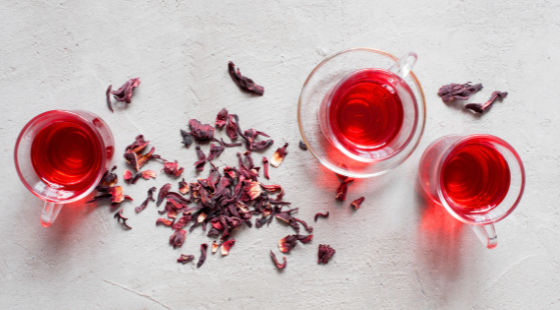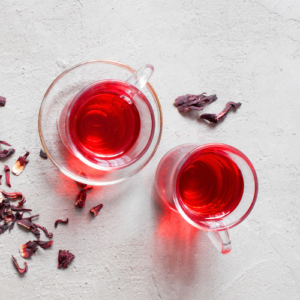
Cortisol: The Stress Response Hormone that Can Cause Havoc in the Body

Believe it or not, we all need some stress in our lives. Stress is healthy and necessary. It’s when stress becomes significant and chronic that it can wreak havoc on our health. Stress can manifest in many different ways whether it is oversleeping or under sleeping, loss of appetite or overeating – everyone’s stress response can be different.
What happens to our body when we are stressed?
When we are stressed, our adrenal glands produce the stress hormones adrenaline and cortisol. These hormones help launch our “flight-fight response”, which increases our blood pressure, heart rate and blood sugars so we are physiologically ready to deal with an imminent threat and can fight or flee. Adrenaline tends to be short lived in the body, but cortisol can stay around for a while. If a person has constant high stress levels then it can lead too excess cortisol, which can contribute to a whole host of health issues.
What is cortisol?
We need cortisol. Cortisol helps your body respond to stress. It has many health benefits when we have appropriate levels in the body. Cortisol helps regulate your blood pressure, reduces inflammation, and keeps your heart and blood vessels functioning normally. It also regulates the way your body converts proteins, carbohydrates and fats in your diet into useable energy.
What happens in the body if we have too much cortisol?
Too much of a good thing can be a bad thing – and cortisol is no exception. Cortisol in large amounts can cause the following problems:
- Excess belly fat
- Weight gain around the face and upper back
- Acne/thinning skin
- Interfere with our ability to think clearly
- Contribute to muscle breakdown
- Contribute to blood sugar spikes
- Headaches
- Digestive issues
- Anxiety or depression
- Sleep problems
- Reduced libido
- High blood pressure
- Fatigue
- Bruising easily
- Poor wound healing
What causes us to have too much cortisol?
Excess cortisol can often be due to chronic high levels of stress but may also be caused by problems with their adrenal glands. High cortisol can be caused by certain medications such as corticosteroids which are frequently prescribed to treat arthritis, inflammatory bowel disease, or asthma. (1)
Drinking too much alcohol on a regular basis can cause cortisol levels to rise. Research of over 3,600 men and women found that alcohol consumption increased cortisol secretion in the body. The increased cortisol levels occur due to the impact alcohol has on the hypothalamic-pituitary-adrenal (HPA) axis. (2)
Caffeine also increases cortisol secretion in people at rest or people undergoing mental stress. (3)
Poor sleep can also increase cortisol secretion. Research found that individuals that had poor sleep had high evening cortisol levels and the levels decreased slower than the control subjects. These elevations in cortisol levels increase the likelihood of developing diabetes and obesity. (4)
Interestingly enough, poor blood sugar control can increase cortisol as well. When our blood sugars drop, which can be caused by missing meals or eating foods high in sugar and refined grains, our body naturally produces the stress hormone cortisol to help raise our blood sugars back up. So, if you struggle with hypoglycemia or diabetes, balancing blood sugars can really help to reduce your cortisol levels.
What is Cushing’s syndrome?
Cushing’s syndrome occurs when you have too much cortisol in the body over a long period of time. Signs of Cushing’s syndrome include a fatty hump between your shoulders, a rounded face, and pink or purple stretch marks on the skin. Cushing syndrome can also result in high blood pressure, bone loss and, on occasion, type 2 diabetes.
Cushing’s syndrome can be treatable, and affected individual’s can return the body’s cortisol levels to normal and improve symptoms. The earlier treatment begins, the better the chances for recovery.
7 Ways To Reduce Cortisol Levels
- Balancing blood sugars – Eat 3 meals a day following the “My Plate” method of ½ a plate of vegetables, ¼ plate of protein and a ¼ plate of starchy carbohydrates such as a baked sweet potato, brown rice, or whole grain pasta. Not only will this help lower cortisol levels but help to support better sleep, mood and energy levels
- Avoid caffeine and alcohol – these both stimulate the increase in cortisol. Alcohol is inflammatory to the body and inflammation can fuel many of those stress-like symptoms.
- Phosphotidyl Serine has been suggested in some studies to support healthy levels of cortisol, with subjects taking 400 milligrams daily (5). Phosphatidlyl serine can be found in organ meats, soy beans, eggs and white beans.
- Modify your exercise routine – Intense exercise places stress on the body and raises cortisol. You may find switching to less stressful exercises such as walking and yoga can lower cortisol levels and lead to weight loss that wasn’t happening when engaged in intense workouts. Also, working out in the morning will raise cortisol levels much higher than evening workouts. That’s because our cortisol is also naturally higher in the morning to help get us going for the day.
- Get good sleep – Sleep is when your body goes into repair and recovery mode, balancing hormones and supporting healthy weight management and lean muscle mass. If you experience poor sleep then cortisol will naturally go up and your ability to deal with stress during the day becomes even more difficult.
- Laugh – Laughter can have a positive impact on elevated cortisol levels. Research found that laughing more could help reduce stress and keep cortisol levels down. (6)
- Stay well hydrated – One study found that levels of hydration can affect cortisol. When the body is dehydrated, cortisol levels increase. (7)
References
- https://www.mayoclinic.org/diseases-conditions/cushing-syndrome/symptoms-causes/syc-20351310
- https://www.ncbi.nlm.nih.gov/pmc/articles/PMC2266962/
- https://www.ncbi.nlm.nih.gov/pmc/articles/PMC2257922/
- https://pubmed.ncbi.nlm.nih.gov/9415946/
- Kingsley M. Effects of phosphatidylserine supplementation on exercising humans. Sports Med. 2006;36(8):657-669. doi:10.2165/00007256-200636080-00003
- https://pubmed.ncbi.nlm.nih.gov/19251872/
- https://www.ncbi.nlm.nih.gov/pmc/articles/PMC3253931/









